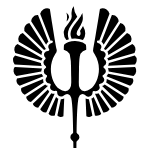Introduction
Located in the beautiful Lake District of Finland, the University of Jyväskylä is one of the largest comprehensive universities in Finland and plays an important role in the Finnish education sector.
Overview
Number of students and faculty: In 2023, the school has about 2,800 faculty, including 1,700 teaching and research staff, more than 14,600 students, 3,050 degrees awarded each year, and more than 26,000 adult students.
Course settings: Courses are offered in the fields of education, anthropology, information technology, mathematics and science, social sciences, sports and health sciences, and business and economics. There are 6 faculties and 5 independent research institutes, with more than 100 subjects for students to choose from.
History and establishment time
The history of the University of Jyväskylä can be traced back to 1863, when Finnish teacher education began here, when the famous Finnish educator Uno Cygnaeus A teacher training school was established on the current university campus, and based on the central location, Finland's first Finnish-language secondary school was also established here, laying the foundation for Finland's famous school system, which has continued to grow and develop since then.
School Strength
Faculty: There are nearly 2,800 experts, including internationally leading researchers and well-known experts in various fields, such as Professor Tommi Kärkkäinen of the School of Information Technology, who has led more than 50 R&D projects, supervised more than 60 doctoral students, and published more than 200 peer-reviewed articles since he received his doctorate here in 1995.
Research Level: The school has a large research influence, with 4 Finnish Academy of Sciences-designated Centers of Excellence from 2022 to 2029 and 3 from 2018 to 2025. The school continues to operate a number of excellent research centers, and has carried out high-quality, influential and ethical research in multiple disciplines. Its research results have a certain reputation internationally.
Teaching resources: The school offers a variety of high-quality research-based two-year English-taught master's degree programs. After graduation, students can obtain an officially recognized master's degree and are eligible to pursue a doctorate. In addition, the school also focuses on cooperation with the business community and all sectors of society to provide students with rich internship and employment opportunities.
Institutional nature
Public university.
Educational philosophy
Emphasis on the dialogue between research, education and society, focusing on interdisciplinary research and education, and is committed to cultivating professionals with innovative ability, critical thinking and social responsibility, and promoting social development and progress through multidisciplinary research and education.
Key laboratories and disciplines
Key disciplines: Education majors have a high reputation in Europe and the world, such as in the 2024 QS In the world university subject rankings, sports-related subjects are at the forefront. Its Faculty of Education is one of the largest in Finland, and is in a leading position in the research of teacher education, adult education, education management, evaluation and funding. In addition, the school also has strong strengths in disciplines such as biology and environmental sciences, information technology, economics and finance.
Key laboratories and research centers: There are accelerator laboratories, applied language research centers, Finnish Education Research Institute, Finnish Lifelong Guidance Professional Knowledge Center, etc. These research institutions provide important support for the development of related disciplines.
Faculty
The school has 6 faculties, namely the School of Humanities, the School of Education, the School of Information Technology, the School of Science, the School of Social Sciences, the School of Sports and Health Sciences, and 5 independent research institutes.
Ranking
QS World University Rankings: 489th in the 2024 QS World University Rankings.
Academic Ranking of World Universities: 701-800 in the 2023 Shanghai Ranking of World Universities.
Expenses
Tuition fees: For students from non-EU regions, such as the master's degree in biology and environmental sciences, the tuition fee is 12,000 euros / In 2017, the tuition fee for the Master of Development, Education and International Cooperation and the Master of Banking and International Finance is 10,000 Euros per year.
Scholarships: The school offers scholarships from the Ministry of Education, as well as a variety of scholarships for Chinese students and visiting scholars.
Campus
The University of Jyväskylä is located in Jyväskylä in the south-central part of Finland. The campus environment is beautiful and the surrounding natural landscape is rich, providing students with a good learning and living atmosphere. At the same time, the school's unique architectural style combines modern and traditional elements. The campus is fully equipped, including teaching buildings, libraries, laboratories, sports facilities, etc., to meet students' learning and living needs.
-

LUT University
-

Hanken School of Economics
-

Åbo Akademi University
-

University of Helsinki
-

University of Vaasa
-

University of Oulu
-

University of Jyväskylä
-

Tampere University
-

University of Turku
-

University of Lapland
-

Mesoamerican University
-

Istmo University
-

Mariano Galvez University of Guatemala
-

Regional University of Guatemala
-

Galileo University
-

Francisco Marroquín University
-

Rafael Landívar University
-

University of the Valley of Guatemala
-

University of San Carlos of Guatemala
-

Technological Institute of Tlaxcala Plateau
-

Golfo University
-

Technological University of South Sonora
-

Technological University of Huejotzingo
-

Tizimín Institute of Technology
-

Chilpancingo Institute of Technology
